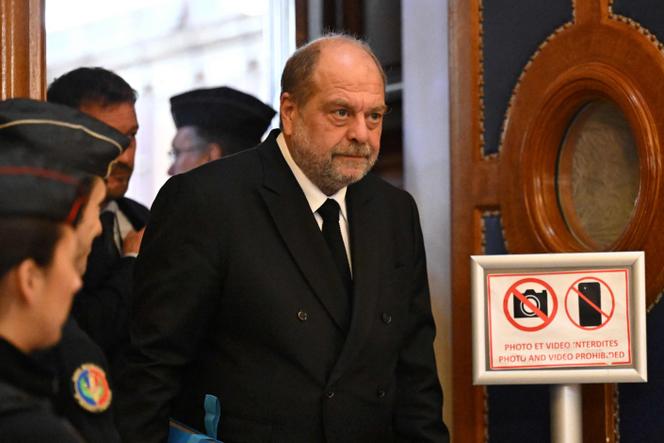


There is no precedent. Since November 6, a serving French government minister – the justice minister, no less – has been on trial before the Court of Justice of the Republic (CJR). Created in 1993, this jurisdiction is unique: It is the only court that can judge ministers for acts committed in the course of their duties. It is made of three high-ranking professional judges and 12 judges who are members of Parliament, elected by their peers (six from each chamber). The court is to decide whether Justice Minister Eric Dupond-Moretti is guilty of "illegal conflicts of interest." To put it more clearly, the question is whether he used his ministerial powers to settle scores against magistrates with whom he had clashed as a criminal lawyer.
The fact that Dupond-Moretti is appearing as a sitting minister is significant. As he keeps saying, he never even thought of resigning. "I've never considered leaving," Dupond-Moretti told Le Monde a few days before the start of his trial. "Without being boastful (...) I don't anticipate being convicted." In his view, a resignation would have been like an admission of guilt. The option was out of the question for a man who never stops defending his presumption of innocence.
His view is shared by Olivier Beaud, professor of Public Law at the University of Paris-II-Panthéon-Assas. "The fact that he remains in office is not a problem. We need only remember that, during his impeachment proceedings, Bill Clinton stayed in place! In France, a justice minister doesn't have the same responsibilities as a US president." Cécile Guérin-Bargues, also a professor of public law at Paris-II and author of a book about the CJR, said she can "understand the position of the justice minister and his attachment to the presumption of innocence." But, she said, "by doing this, he puts himself in an even more difficult situation." The consequences of remaining in office are numerous.
First of all, there is the problem of the ministry's organization. The minister is supposed to run business as usual. The reality is obviously more complicated, because the trial has been rather time-consuming, spread out over half-days from November 6 to 16 – not to mention the hours of preparation with his two lawyers, Jacqueline Laffont and Rémi Lorrain. The minister's staff has downplayed the situation, comparing it to a long trip abroad or overseas. "There were no unpleasant surprises. Decrees and orders have been issued, letters signed and sent, and the ministry has been represented everywhere. It's really 'business as usual'," argued an adviser.
You have 55% of this article left to read. The rest is for subscribers only.
